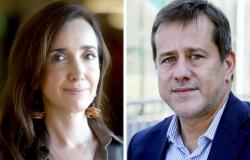The vacation that the family Faraj Allah Jarjour excitedly organized from Canada to Cuba They went wrong on March 22 in a way they never could have imagined.
The father of the family was struck down by a heart attack while swimming in the waters of Varadero. Thus began a bizarre story. The days of sun and beach mutated into the mystery of the missing corpse, a situation more typical of a mystery novel than real life.
After cumbersome procedures and a payment of 10,000 dollars for repatriation, they received Quebec the body of a Russian man, twenty years younger. At the end of April they were informed that his remains had been buried in Russia and at the end of May they had not yet been repatriated. The fiasco directly affects the two main sources of tourism to the Caribbean island today.
Relieved to know his whereabouts, they continue with the anxiety of having no idea when they will be able to recover his mortal remains. «At least we know where he is. “It’s not easy for us,” he declared. Miriam Jarjour, to the Canadian media TVA Nouvelles. Faraj’s daughter added that “the family does not know when the man’s remains will be repatriated,” as it will require the exhumation of the already buried body.
The family complained about the poor treatment received both in the first aid – they reported that the body remained unattended on the beach for 8 hours – and in the process.
After the news appeared in the media of the North American country, the Cuban Minister of Foreign Affairs, Bruno Rodriguezsent “heartfelt condolences” to the family and Havana also reimbursed them for the amount spent on the repatriation.
«I spoke by telephone with the chancellor Melanie Joly for the unfortunate incident in the transfer of the remains of a Canadian citizen who died in Cuba. “Cuban authorities are investigating the incident to clarify it,” Rodríguez wrote on Twitter.
The “incident” clouds the efforts of the Cuban authorities to stimulate tourism
The Jarjour family continues without understanding the ordeal they experienced or how it could have happened so that the Cuban insurance company responsible for the shipment would exchange the coffins. The Russian’s relatives did not open the coffin, organized a funeral and assumed that they had buried his relative.
The “incident” clouds the efforts of the Cuban authorities to stimulate tourism which, along with the sending of remittances and the export of medical services, has been the main source of foreign currency income for years.
Shortly after the news broke, one of the main island tourism agencies posted an advertisement starring a plump Canadian from a sun lounger on the beach encouraging people to visit the largest of the islands. Antilles.
But reality prevails. “Three out of every four hotel rooms are empty,” says Yunior, a worker at a hotel with a Spanish flag. «And unless they have family or interests here, those who come only as a beach destination do not repeat. Currently, competition from destinations such as Dominican Republic and the Mexican Caribbean, which offer services with higher quality and luxury standards, are making an impact on the sector,” he adds.
The Cuban economist Pedro Monrealwho in 2023 described hotel activity in Cuba as a “broken business,” wrote on his Twitter account that “in a quick review of five statistical reports released today (May 25) in Cuba, the following stand out: the monthly drop of 23.5 % of tourists in April, the low hotel occupancy rate of 35.5% in the first quarter of 2024, and the increase in the relative weight of investment associated with tourism.
Monreal adds that “the recently released tourism and investment data do not match the official story of ‘correcting distortions’: the weight of the tourism investment in a context of low utilization of capacity, at the same time that there is not enough agricultural investment.
The regime began to build hotels and more hotels, according to opponents to launder money from foreign investors
There were years of prosperity after the diplomatic rapprochement between Cuba and the United States December 2014. The projections, and the hopes, were very good. Four million travelers were reached, of which one million three hundred thousand were Canadians, which made that country the main source market for tourists to Cuba. According to the National Office of Statistics and Information (ONEI), from January to March 2024, they received 399,272 Canadians.
The regime began to build hotels and more hotels –according to opponents to launder money from foreign investors–, many individuals spent their savings on improving their homes to rent rooms. The government granted licenses without too many obstacles to increase the number of accommodations while hotel establishments were built.
The triumph of the republican donald trump In 2016 he put an end to the boom. Flights and cruises were suspended, visits included in the “town to town” category were cancelled, and, consequently, the legions of exultant “gringos” who rode “almendrones” – cars from the 1950s tuned and painted in cheerful colors – disappeared. – smiling under Panama hats to protect themselves from the scorching Caribbean sun.
Among the 600,000 “cuentapropistas” (self-employed), “paladares” (restaurants), bars, ice cream parlors and nightclubs flourished. His clientele were foreigners and Cubans with income in foreign currency. The high price of their services was unaffordable for the majority of the island’s employees. Tourism fueled general economic well-being.
Trump was followed by the COVID epidemic, the island was closed tight and many private businesses lowered the shutters. Without tourism for more than a year, with the unilateral US blockade reinforced and applied extraterritorially, internal errors admitted by the main communist leaders, the situation went from bad to worse. Despite ‘experiments’ to revive the economy, far from recovering, it is getting worse.
“Now we are worse than in the ‘special period,'” Yuri, a peasant who sells “javitas” (bags) in a fruit market in the capital, comments by phone. It began in the mid-90s. It occurred when Moscow, after the fall of the Soviet bloc, stopped supporting Havana. That stage is still remembered with regret.
Worsening of the situation
According to the latest annual report released by the ONEI, the average state salary in 2023 was 4,648 Cuban pesos (37.18 euros, at the official exchange rate of 125). But this year the Cuban peso collapsed and it was changed to 400 euros in mid-May. In the end it dropped to 350 because the banking authorities do not put Cuban pesos into circulation and demand has decreased.
For digital publishing The touchaccused by the government of manipulating exchange rates, “OMFi’s macroeconomic models suggested that a rate around 400 CUP per 1 USD was consistent with the size of the imbalances expected for 2024 in the Cuban economy.”
The rate was estimated based on the magnitude of the fiscal deficit budgeted for this year, the stagnation of the gross domestic product (GDP), the increase in the amount of money in circulation and the domestic and international inflation rate.
However, the scarce data from the first quarter and the new crises of the obsolete and undercapitalized national electrical system They point towards a worsening of the economic situation for economic actors, which would be reflected in the equilibrium rate for 2024.
The growth of tourism has slowed, exports of goods fell below expectations and the sugar harvest continues to fail to stabilize production. “At the end of February 2024, the imbalance in the State budget accumulated more than 20 billion pesos.”
The news is not optimistic. The average salary a year ago was between 30 and 50 euros. Currently, and due to the tremendous inflation, it has dropped to less than 10 euros at the exchange rate.
The shortage of food, medicine and basic products and gasoline, the partial dollarization that allowed those who had cards in foreign currency to buy in well-stocked stores, but at prices that were unaffordable for ordinary Cubans – a baguette costs 400 Cuban pesos (3.2 euros at the official exchange rate, 1 on the black market) and a carton of 30 eggs 4000 (32 euros at the official exchange rate, 10 at the black market exchange rate) – led to a situation of generalized unrest that gave rise to national protests never seen before.
“It’s better not to talk about pork and chicken,” Yenny, a Cuban living in Spain who traveled to visit her family in Las Tunas, tells us via WhatsApp. Disheartened by what she has seen, she claims that there is no joy in the streets. “They are getting older and older and the young people who are able are leaving.” And meanwhile, tourists are conspicuous by its absence.






